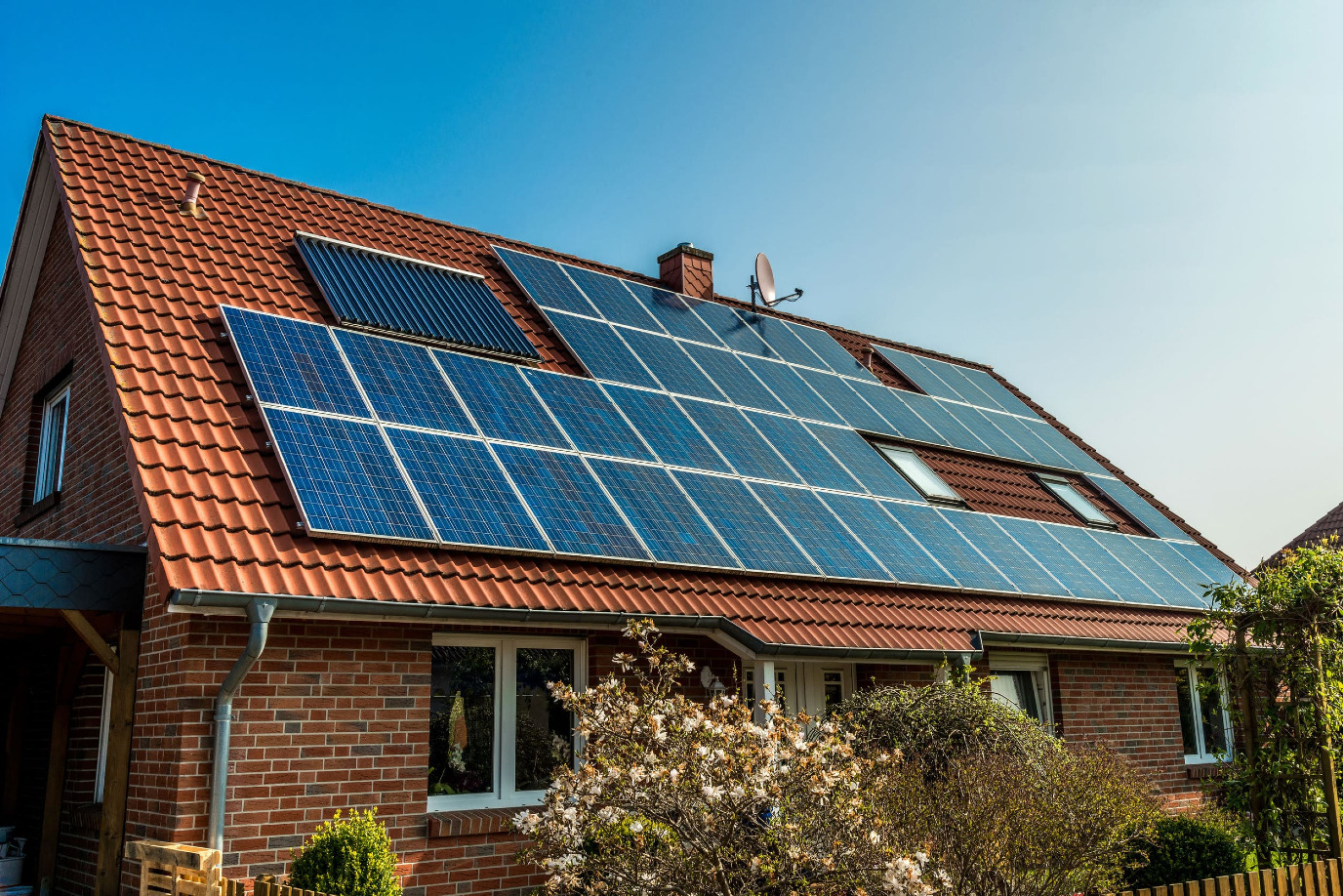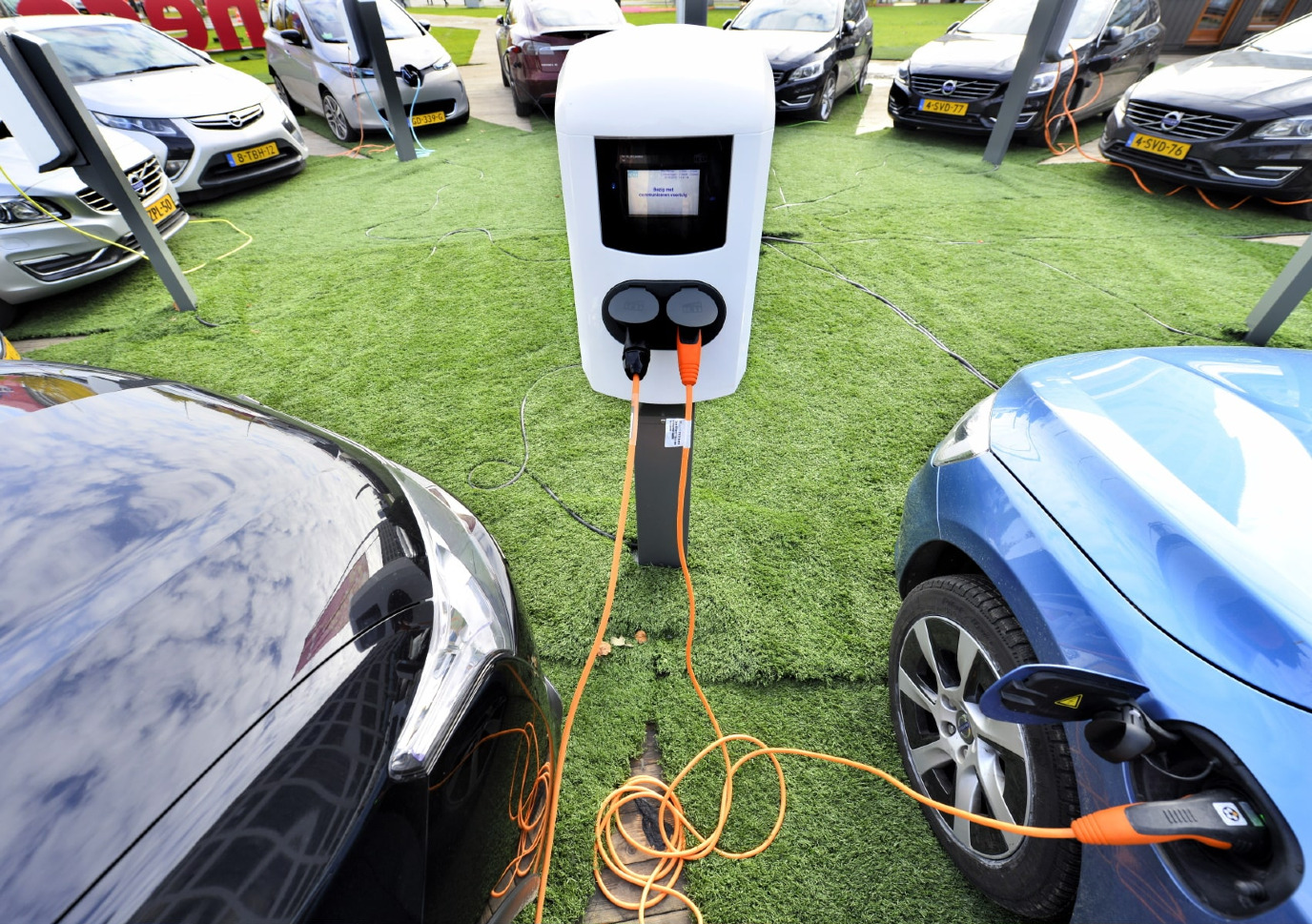‘Only lowering the emissions cap will force an energy transition’

If you trade in your petrol-fuelled car for an electric one and put solar panels on your roof, you will be helping to limit CO2 emissions. Won’t you? Yes and no. ‘An electric car does help, but solar panels don’t’, says Professor of Energy Economics Machiel Mulder. To clarify how this works, he wrote the book Energietransitie: Eerst snappen, dan doen [‘Energy Transition: First understand, then act’].
The subtitle of Machiel Mulder’s new book, ‘First understand, then act’, implies that when it comes to the energy transition – from fossil fuels to sustainable energy – we still don’t really know what we’re doing. According to Mulder this is actually true, although he puts it differently. ‘More and more people are convinced of the necessity of the energy transition and most people want to make a contribution to it. People decide to do something sustainable and that makes them feel that they’re doing the right thing, but often it makes almost no difference to their CO2 emissions.’ Like putting solar panels on your roof, for instance.
‘That is because of the mode of action of the CO2 emissions trading scheme that has been in place in Europe since 2005 for approximately half of emissions’, explains Mulder. ‘If you put solar panels on your house, gas-fired power stations can produce less power and therefore buy fewer CO2 allowances. The demand for and the price of emission allowances then fall, so that other companies can buy additional allowances more cheaply in order to produce more. So it’s a waterbed effect.’ And why does an electric car help to lower CO2 emissions? ‘Because petrol is not included in the emissions trading scheme. Unfortunately.’

Market forces
According to Mulder, it is precisely because market forces mean that anyone who thinks they have a good idea can try their luck that the good companies will survive – the companies that can supply affordable energy thanks to their revenue model. ‘Imagine you have one nationalized energy company. Who would be in charge? The government and the House of Representatives. They are much less likely to make the best decision than if there were many more companies all trying to do the best thing, so that there is a higher chance that a few companies make the best decision.’
Another point is that if energy companies are nationalized, all the investment also has to come from the government. ‘The government (the state of the Netherlands) already owns Gasunie and TenneT, and the municipalities and provinces own all the distribution networks’, says Mulder. ‘But in recent years the problem at TenneT has been that a lot needs to be invested in the electricity grid to connect offshore wind farms and the only shareholder, the state, was not willing to deposit enough of its own funds, while TenneT can only be funded to a limited extent by private parties such as banks. The same applies to the administrators of the distribution networks. They don’t get enough money to solve congestion problems because the municipalities and provinces also have to fund so many other things.’
Hefty fine
This is what Mulder means by ‘understanding’. ‘With the CO2 trading scheme, a certain maximum of emissions has been established. Removing a certain amount of emission allowances from the system each year will cause that ceiling to gradually decrease to zero by 2050. At the end of each year, companies have to submit an auditor’s report to the government to show how much they have emitted and how many allowances they have. If they have emitted too much, they get a hefty fine. That is really the incentive.’
Mulder shows a graph in his book with the number of emissions allocated and the actual emissions of the businesses covered by the trading scheme. The emissions line obediently follows the descending line of the emissions cap. Mulder then shows another graph: ‘The price of CO2 allowances is very high at the moment and for years, it was very low, but that makes no difference at all as regards the effects on the environment. The only thing that counts is the height of the cap!’
So if we hear another politician, columnist, or acquaintance proclaiming with certainty that the CO2 price is much too high or too low, we can treat them to some well-founded ridicule. Does this also apply to those who call for the nationalization of the energy sector, as SP politicians did last October? Mulder himself is not the kind of man to pour scorn on ideas, but he does have some serious reservations about this idea. ‘Until the late Nineties we had state companies doing all sorts of things, from transport to production and energy supply. Gasunie, for instance. There were many complaints about high energy prices in the Netherlands then too. So those companies did not operate efficiently.’

Economic perspective
That’s clear, but then what should we do to reduce CO2 emissions? Mulder: ‘Emissions trading is crucial, so the cap needs to decrease faster. That’s the only thing that works. And more sectors should be made subject to the cap, such as household gas consumption and fuels for traffic. In the Green Deal, European Commissioner Frans Timmermans also proposed that cars should be made subject to the emissions cap. That’s a good idea. At present there are taxes on cars and petrol, but that is not linked to the available quantity of emission allowances. Air traffic within Europe is already subject to the emissions ceiling.’
According to Mulder, it is fine to leave how the various sectors should reduce their emissions to the market. ‘What I say is that no-one knows what is best. In my book, I don’t write what the best technology is, or that one party should use hydrogen and another should save energy. The most important thing is that you have to be able to respond to prices that reflect scarcity and that fit in with the emissions cap. Then things will turn out well.’ So is the price cap for gas that will come into force as of 1 January a bad idea? ‘Yes, because then as a consumer you will think the scarcity is not that bad, whereas in the worst case the government will have to determine who gets gas and who doesn’t, because a price cap doesn’t eliminate the scarcity of gas.’ That said, Mulder is the first to admit that his view as an economist only tells one side of the story of energy transition. To put it in terms of solar panels: ‘While solar panels may not help to reduce emissions, of course they do reduce our dependence on dubious regimes for our energy’, says Mulder. ‘My economic perspective is a puzzle piece in the whole of all the puzzle pieces.’
Multidisciplinary
All of those puzzle pieces are addressed in the executive course units that Mulder has been giving for the University of Groningen Business School (UGBS) since 2014. ‘Many of the course unit participants work for government agencies or energy companies and want to know more about the energy transition. They are a very appreciative audience. People from a wide range of fields – technology, chemistry, nuclear energy, philosophy – bring up ethical issues, psychology, behaviour and public support, law, what is and isn’t allowed, and so on and so forth. I string it all together, but I also give lessons myself on energy policy, climate policy, and energy markets.’ In his research, Mulder also collaborates a lot with colleagues from faculties such as Law, Science and Engineering, and Spatial Sciences. ‘All of those aspects are very relevant. That’s the great thing about energy, it’s really multidisciplinary. When I used to work for the government, at the Netherlands Competition Authority among other agencies, I already had a lot to do with lawyers, engineers, and public administration experts.’
Since the publication of his book in late June, Mulder has received many positive responses from readers – including those with solar panels on their roofs. ‘I recently heard from a journalist that in his editorial team, my book has become the reference book for people writing about energy. For me, that was a great compliment. He asked if I was going to update it. I am. There will be an edition with recent developments that have taken place since I wrote the book. But that will be next year.’
Machiel Mulder (1960) studied economics at the University of Groningen and obtained his PhD at Erasmus University Rotterdam. He was head of the energy division of the Netherlands Bureau for Economic Policy Analysis and deputy head economist at the Netherlands Competition Authority. From 2013 to 2020, he was Professor by special appointment of Energy Market Regulation in Groningen and since 2021 he has been Professor of Energy Economics.
This article has been taken form in the December edition of our alumni magazine Broerstraat 5. Text: Bert Platzer.
More information
| Last modified: | 11 June 2024 09.18 a.m. |
More news
-
10 December 2024
Research by Statistics Netherlands (CBS) and the University of Groningen finds possible circumvention of sanctions against Russia by small, young businesses
Dutch goods exports to Russia fell sharply after the European Union scaled up sanctions in 2022. At the same time, Dutch exports of sanctioned goods increased to seven countries with an increased risk of sanction circumvention. A striking number of...
-
26 November 2024
New Research Highlights Cost-Saving Benefits of Lifestyle Behavior Change App
A study conducted by researchers from the Faculty of Economics and Business (FEB) of the University of Groningen has found that the use of the SamenGezond app, offered by health insurance company Menzis, is associated with a notable reduction in...
-
20 November 2024
Gerard van den Berg appointed as member of the Academia Europaea
Professor Gerard van den Berg had been appointed as member of the Academia Europaea, the European Academy for Sciences, Humanities and Letters.
